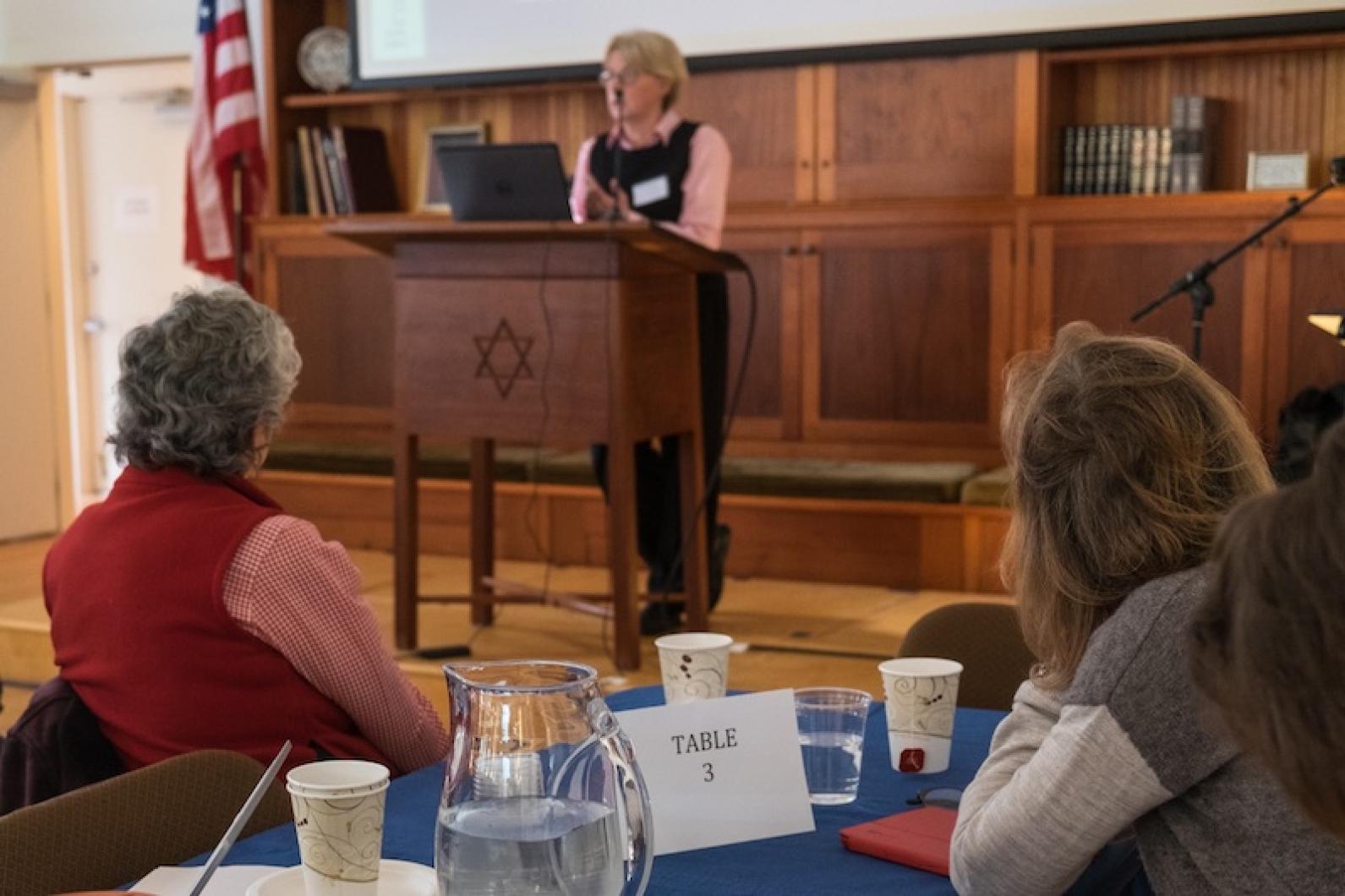Affordable housing and better access to mainland health care services are priority needs for older Islanders, a recent survey conducted by the Healthy Aging Task Force has found.
Conducted last fall by the task force, now calling itself Healthy Aging Martha’s Vineyard, the survey is expected to set the stage for initiatives among members of the elderly population in the coming years.
On the Vineyard, that population is expected to more than double in 15 years, and to almost triple by 2060.
The task force survey was completed in December, with a final report and analysis drafted this year by researchers at the Heller School for Social Policy and Management at Brandeis University.
A draft report dated Feb. 8 singles out housing needs and fall prevention as key areas to consider this year.
Nearly half the Island’s 4,762 residents ages 65 and up responded to the survey over a period of about two months last fall. The 50 questions related to housing, employment, transportation and other topics that affect seniors and caregivers.
In analyzing the data, researchers focused on the most vulnerable residents, including those over 85 (11 per cent of respondents), and those without access to short-term emergency help. People who live alone, have limited mobility, or have fallen in the last year were also considered among those most at risk.
Housing was among the areas of highest concern. About a third of those surveyed lived alone, with only four per cent living in apartments designed for seniors. Another two per cent lived in guest houses or accessory apartments. Nearly half the respondents said they needed some sort of housing modification to support them in old age, but 13 per cent lacked the resources to do so.
The survey targeted only those who live on the Island at least six months out of the year. Almost 90 per cent of the respondents were year-rounders.
The high cost of living was clearly an obstacle for many Island elders. About 20 per cent of the respondents were contemplating a move in the next two years.
“Whether they are considering a move off-Island or to another home on-Island, the top reasons are the same: needing a less expensive home or a lower cost of living,” the report states. Many elders living in large houses wish to downsize, the report adds, “but feel the supply of smaller elder-friendly and affordable homes is very limited.”
About 30 per cent of elders had fallen in the last year (43 per cent among those over 85), more than the state average. The frequency of falls strongly corresponds to the need for housing modifications, according to the report.
Respondents also said they had issues with uneven sidewalks, poor lighting and snow removal, which may further influence the frequency of falls.
The report also highlights the need for more accessible health care. About one in seven seniors said they go off-Island for basic health care, and one in four for dental care. Eight per cent said they have no dentist at all. Noting that the majority of specialty care already occurs off-Island, the report calls for additional off-Island medical transportation and more accessible dentists and primary care physicians.
Other key areas of concern were caregiver support, economic and volunteer activity among elders, and looking more deeply at daily transportation needs. The report also notes the importance of Island Councils on Aging, which often serve the most vulnerable elders, but were unused by half the survey respondents.
Healthy Aging Martha’s Vineyard will consider its priorities this year and come up with more detailed proposals.
For more information about Healthy Aging Martha’s Vineyard, visit hatfmv.org.







Comments (1)
Comments
Comment policy »